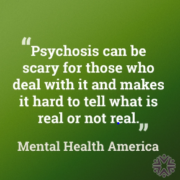Mental Health in Teenagers by Dr. Debbie Bauer, Pediatrician
Adolescence is a very difficult time for everybody, kids and parents alike. Teenagers are going through all kinds of changes such as: physical, emotional, intellectual and social. It can be hard to keep up with the way their feeling and finding ways to communicate with them. It’s a big challenge to try and not feel overwhelmed during these transitions. It’s very normal for a teen to feel moody, sad, or anxious, but when these feelings take over their life and start to affect how they think and act, it can become a serious problem. Mental health issues are much more common than you may think, about 1 out of every 5 adolescents has had a serious mental health disorder at some point in their life.
What parents need to know:
- A mental health issue isn’t anybody’s fault. Just like with any other health complication, this is not a choice, it’s an actual problem with how the brain functions. The reason these issues develop is incredibly complicated and involves both genetic and environmental factors.
- Mental health problems are common and treatable. There are many people and resources that are available to help your teenager. From pediatricians, to school guidance counselors, to mental health professionals – we’re all here to help. The sooner a concern is raised, the more time we have to address the issue, and get your teen the assistance they need. If you have any doubts, reach out!
- It’s important to stay involved. Try to build a trusting relationship between yourself and your teenager. They should feel comfortable sharing information with you without fear of always being punished for bad choices. It can be helpful to share decisions that you have made or lessons you have learned from the past. Remember, they are still learning.
Signs of mental illness to look out for:
- Loss of interest in past favorite activities
- Sudden personality shifts that seem out of character
- A sudden and/or dramatic change in grades
- Isolation from friends and family
- Big changes in sleep habits (more or less sleep then usual)
- Dramatic changes in eating habits
- Anything else that you think is concerning about their behavior
If you have any concerns about your teen’s mental health, talk to them. From there, you can schedule an appointment with their pediatrician. At NOAH, we address all aspects of your child’s health including their initial medical assessment. Other services that are available to you and your child include counseling and nutrition.
For more information, please visit:










